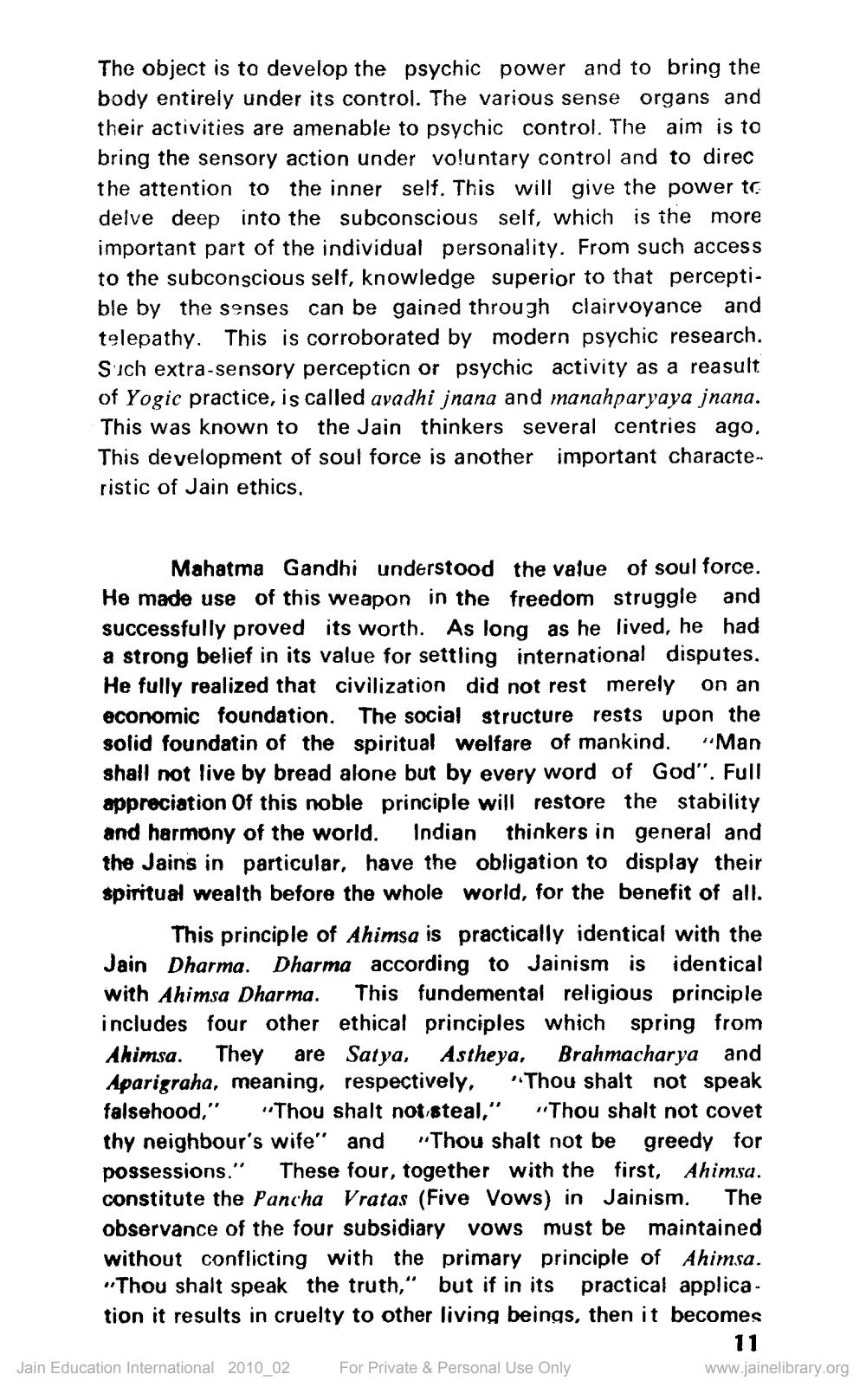________________
The object is to develop the psychic power and to bring the body entirely under its control. The various sense organs and their activities are amenable to psychic control. The aim is to bring the sensory action under voluntary control and to direc the attention to the inner self. This will give the power to delve deep into the subconscious self, which is the more important part of the individual personality. From such access to the subconscious self, knowledge superior to that perceptible by the senses can be gained through clairvoyance and telepathy. This is corroborated by modern psychic research. Such extra-sensory perception or psychic activity as a reasult of Yogic practice, is called avadhi jnana and manahparyaya jnana. This was known to the Jain thinkers several centries ago. This development of soul force is another important characteristic of Jain ethics.
Mahatma Gandhi understood the value of soul force. He made use of this weapon in the freedom struggle and successfully proved its worth. As long as he lived, he had a strong belief in its value for settling international disputes. He fully realized that civilization did not rest merely on an economic foundation. The social structure rests upon the solid foundatin of the spiritual welfare of mankind. Man shall not live by bread alone but by every word of God". Full appreciation of this noble principle will restore the stability and harmony of the world. Indian thinkers in general and the Jains in particular, have the obligation to display their spiritual wealth before the whole world, for the benefit of all.
This principle of Ahimsa is practically identical with the Jain Dharma. Dharma according to Jainism is identical with Ahimsa Dharma. This fundemental religious principle includes four other ethical principles which spring from Ahimsa. They are Satya, Astheya, Brahmacharya and Aparigraha, meaning, respectively, "Thou shalt not speak falsehood," "Thou shalt not steal," "Thou shalt not covet thy neighbour's wife" and "Thou shalt not be greedy for possessions." These four, together with the first, Ahimsa. constitute the Pancha Vratas (Five Vows) in Jainism. The observance of the four subsidiary vows must be maintained without conflicting with the primary principle of Ahimsa. "Thou shalt speak the truth," but if in its practical application it results in cruelty to other living beings, then it becomes
11
Jain Education International 2010_02
For Private & Personal Use Only
www.jainelibrary.org




